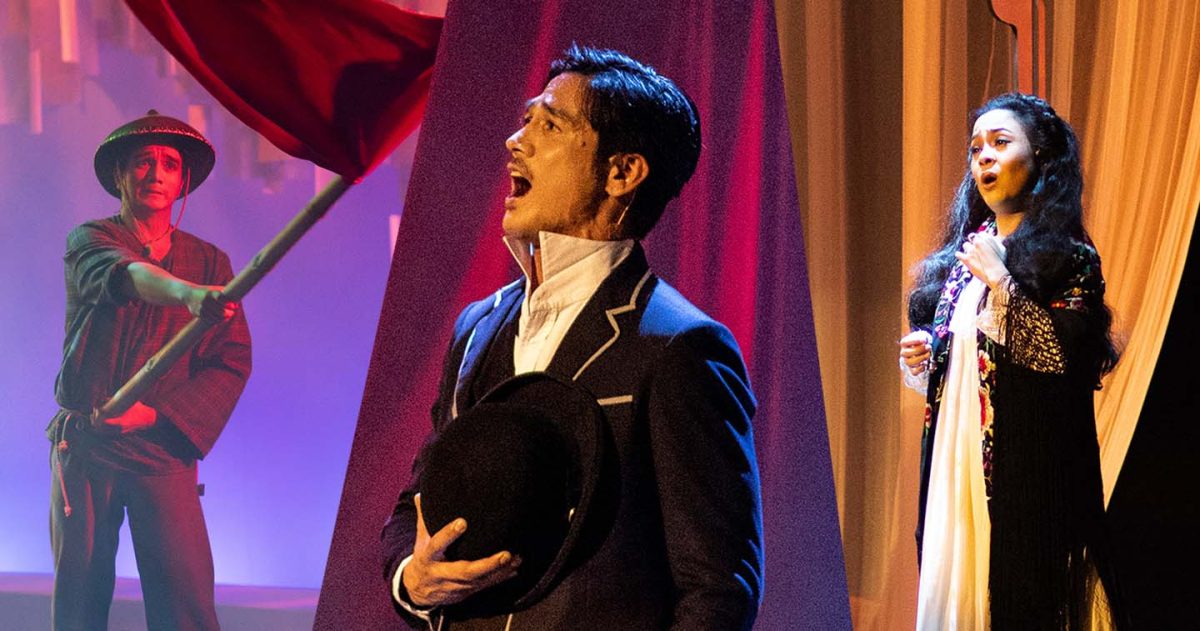MANILA, PHILIPPINES — With television actor Piolo Pascual as its headliner, “Ibarra” is an anticipated watch for history buffs and theater lovers. An adaptation of Jose Rizal’s Noli Me Tangere, the musical is a revamp of a 40-year-running show which was originally written in 1994 for the Cultural Center of the Philippines (CCP)’s laboratory theater called Gantimpala.
“Ibarra” tells the story of Crisostomo Ibarra, an ilustrado who had returned to his hometown San Diego, and discovered the circumstances surrounding his father’s death. Despite learning of his father’s falling out with the influential Friar Damaso, Ibarra pursued his dream of educating the townspeople by establishing a school. Other characters, representative of the social entities of its period, came into play in fairing Ibarra’s fortune such as his childhood sweetheart Maria Clara, and the pilot and outlaw Elias.
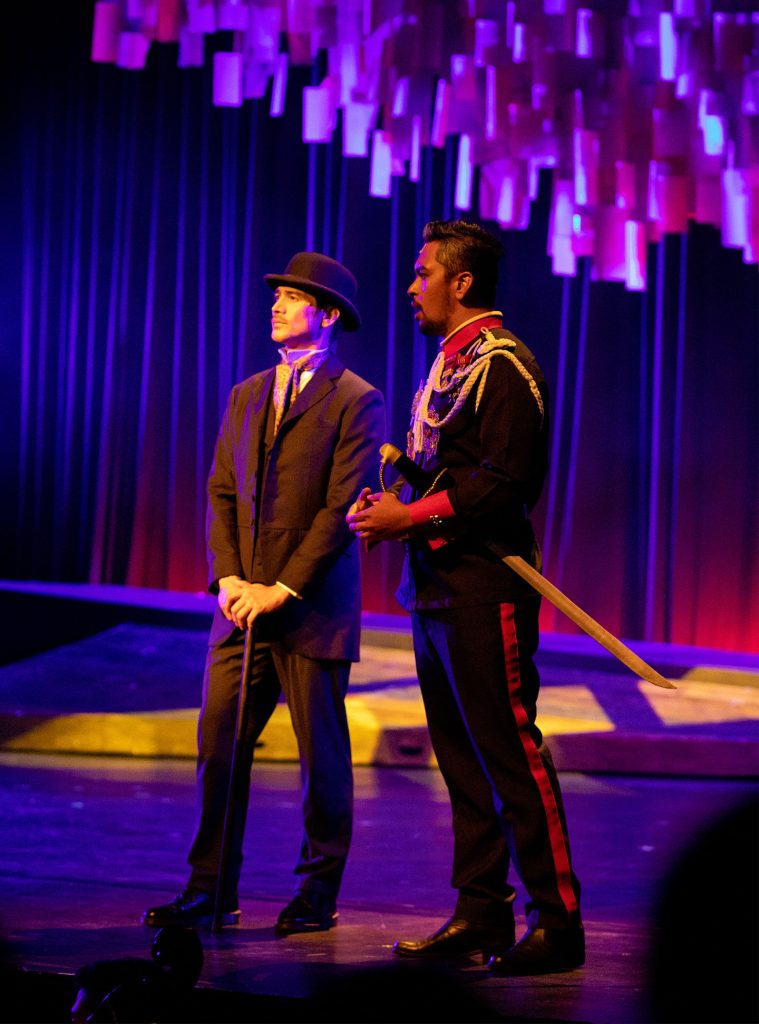
When asked why he chose Piolo as its lead, Director Frannie Zamora said, “Nasa kanya yung silhouette ni Ibarra. He can sing, he can definitely act.” He added that although he trained the actor for the role, the stance, gait, and intelligence were already there.
Piolo’s abilities were seen in his character’s phases of romance, grief, and revolution. He fills the shoes of a patriot more than the son seeking vengeance for his father’s eventual demise. Perhaps, the original title of the show “Kanser” is telling.

Production value is one of the strengths of this production, all thoughtfully considering the scale and dimensions of the stage and exceptional during tableau. The visual cohesion, lights, and set were designed for more than just spectacle but function too, most notably the ramp that creates an illusion from afar and interchanges as a platform when required for specific scenes.
With a 13-piece ensemble of the Manila Symphonic Orchestra, live music is on the upside of the whole experience. Heavy on the percussion, the music provides context to each scene’s atmosphere and the audience can look forward to the scenes when the suite is in full swing.
While Piolo Pascual is undoubtedly the most immediately appealing factor for showgoers, women brought the power with performances from Nicole Laurel-Asensio as Sisa and Myramae Meneses as Maria Clara, each portraying dignified heroines from the novel — highlighted in their duet “Paano Kita Mamahalin,” which draws parallel in their storylines.

Talking to Nicole during the opening night, she explained how her popular role symbolizes more than a woman in tragedy. “She is a metaphor for our motherland and the pain that our motherland had to go through so many times, even until today. She was mistreated, she was used, abused, but she gave nothing but love until her dying breath.”
In this production, no character is an appendage to the story, no role is too small. Be it Pilosopo Tasio as the narrating voice of reason, the Doñas (Victorina and Consolacion) upstaging each other, or the ensemble that fills the stage. One of the best scenes in the play is Mga Liham at Lihim where the exchange of letters reveal Maria Clara’s true parentage and provide evidence against the accused Ibarra. There is synergy at the scene’s ending when the characters took their places and their motivations finally made sense.
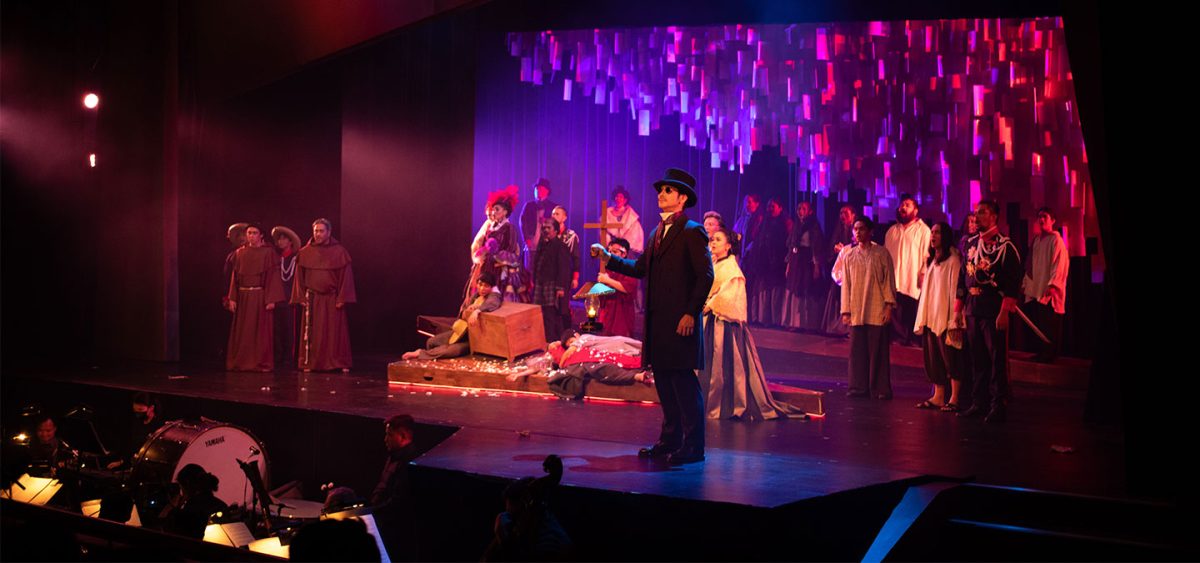
Elias, played by Kevin Posadas, provides a strong, stark contrast to Ibarra’s character, at times running circles around the protagonist. One would also rediscover the richness of the Tagalog used in the libretto by playwright Jomar Fleras, from the dialogue in spoken scenes to the metaphors in the lyrics.
“Ibarra” dedicates much accuracy to Noli Me Tangere in the sense that it is an almost direct sketch from page to stage. A production that takes on such rich material did the taxing job of condensing the piece without missing its crucial scenes.
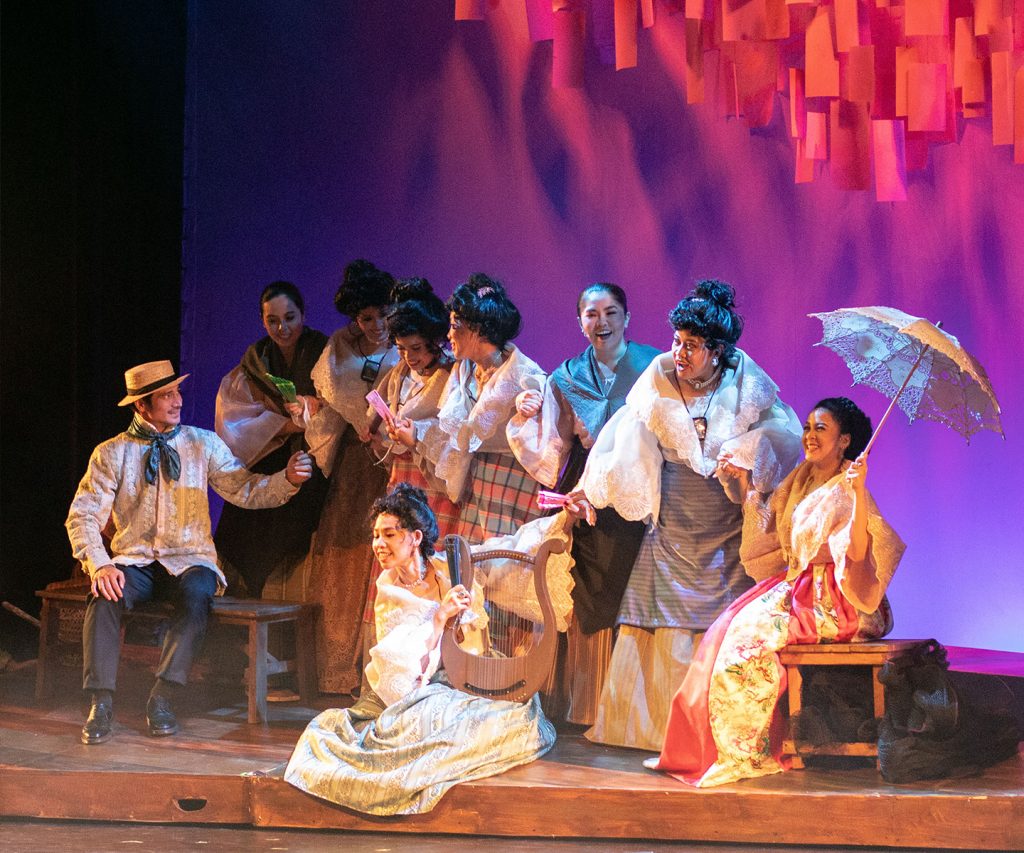
With a renewed interest in these characters thanks to mainstream media, the musical puts the intensity back on the table. Explaining the relevance and its message, Director Frannie said of the play, “In learning, in education, there will be strength and unity.”
More than a theatrical experience, the musical would evoke a sense of patriotism in the permitting audience. Put into words by Nicole, “Even if this is a period piece, it doesn’t mean that the relevance of it stays in that period. The relevance of it still resonates today, and I hope it ignites that inspiration to do our best for our motherland. Whatever field we’re in, whether we’re in the arts or business or whatever it is, we have to show the world what the Filipino is capable of.”

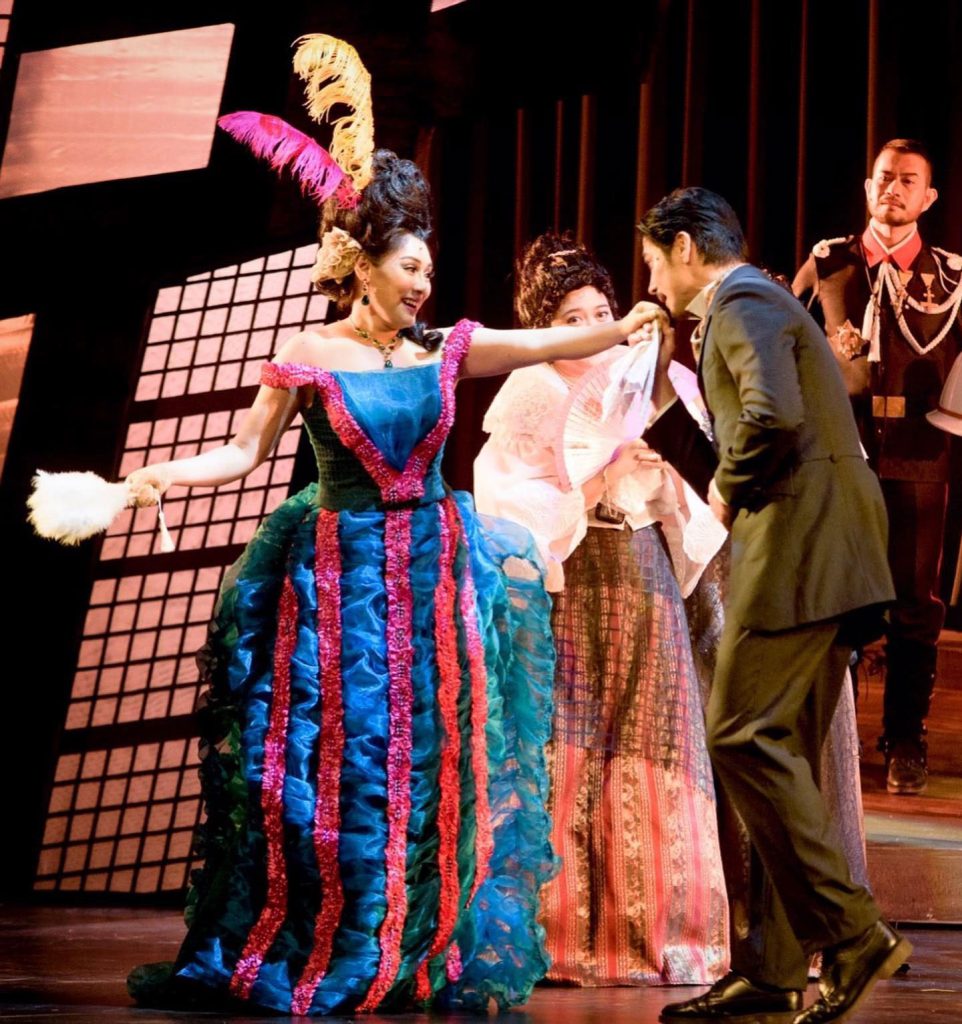

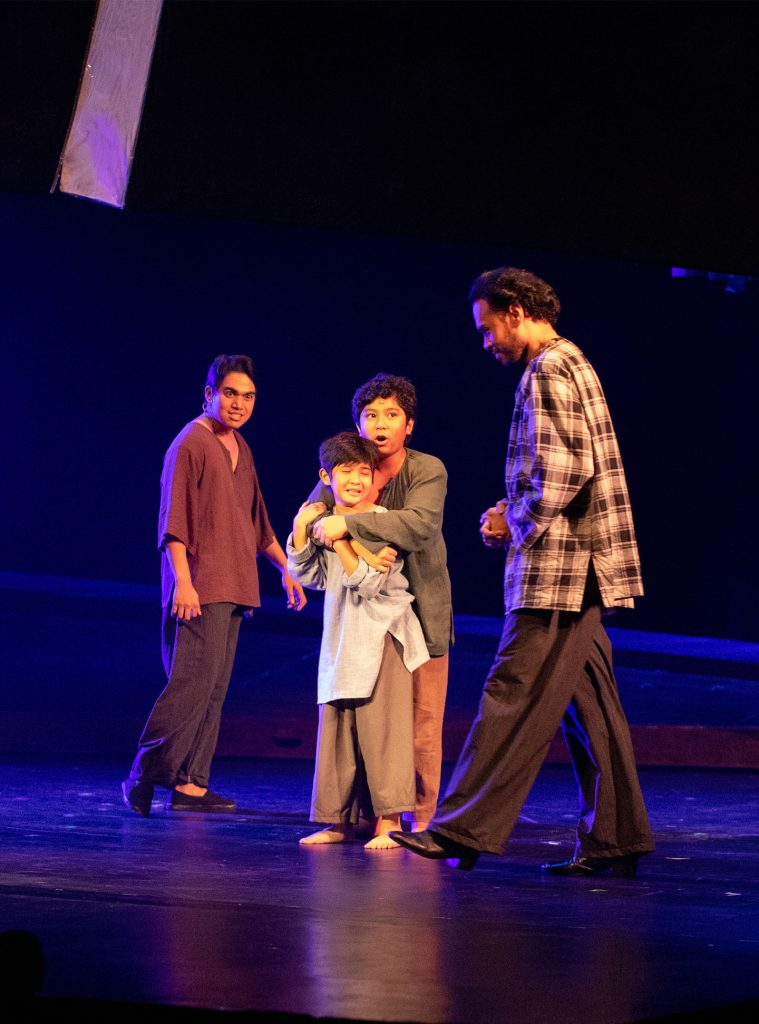
Ibarra runs from June 8-18, 2023 at the GSIS Theatre. Tickets available on TicketWorld or Ticket2Me.

